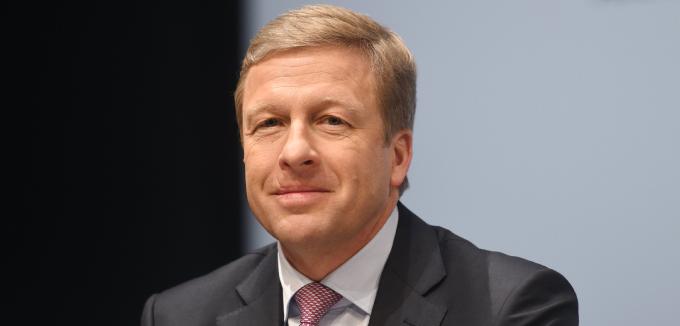Tobias Rabbit / dpa
He could become the new BMW boss: Oliver Zipse, previously responsible for the production of the board
Oliver Zipse has already made a name for himself in the automotive industry. The 55-year-old and possible successor to Group CEO Harald Krüger stands for the fact that BMW has made its production less dependent on trade conflicts and cyclical fluctuations through a sophisticated network of global production sites. For example, with the white and blue logo, the Group is now building the sought-after city SUV X3 in the USA, China and South Africa, enabling it to supply the markets as needed.
BMW is therefore considered exemplary in the industry. “If something goes well with them, then it’s the works,” says an industry insider appreciatively.
But otherwise things are not going well at BMW. Although the Munich-based battery-powered i3 and the i8 were early in favor of electromobility, they are now threatened with being left behind, as competitors like Volkswagen are investing heavily in e-cars. According to experts, the pressure has increased even more because at the beginning of the year BMW wrote a loss in the car business for the first time in ten years and is facing severe cuts. After the former CEO Harald Krüger his Withdrawal has announced, therefore, the group is looking for a “strong man” who is to turn the wheel.
This is a feature that you miss in the BMW four-cylinder on the Munich city highway for some time at the top of the company. Zipse is said not to avoid conflicts. “On the contrary, he is very decisive and assertive, and when he has found a position for himself, he puts it through,” says the confidant.
Read also the comment: BMW needs more alpha again
Another success is the system of leading and partner plants that Zipse has introduced. Since then sites have been in overall control of certain vehicle segments, others have to submit. Spartanburg, for example, has a leading role in the X-series. Zipse is also credited with having started production in such a way that the factories can build all kinds of drives, from the combustion engine to hybrid cars and the pure Stromer.
Manager of old school, where Zipse needs to get better
However, in the opinion of experts, successes in production alone are not enough to steer a carmaker on the path to electromobility – which, in addition, must assert itself against the increasing competition from IT groups. “A CEO needs to have an idea of how mobility will evolve in the future, going far beyond optimizing an existing business,” says Carsten Breitfeld, chief executive of Iconiq Motors of China and even a former BMW engineer. “He needs to be able to build teams, attract talent, and nurture a culture that is increasingly geared to consumer electronics and the dynamics of the Internet,” says Breitfeld. The boss of a car company must be able to inspire and take the employees.
Also read: Why the dream job boss often becomes a nightmare
That belongs – so far anyway – not necessarily to Zipses strengths. The father of two adult sons, married to a Japanese woman, is described more as an old school manager. He is one of the last Schlipsträger in the industry. In contrast, the former Daimler CEO Dieter Zetsche was also on big stage like in sneakers and jeans. Even Volkswagen boss Herbert Diess, even earlier at BMW, likes to be casual.
However, Zipse is considered a skilled conversation partner, who can sometimes extend his elbows. This is not a disadvantage in an industry in which the competition is rather sharper, my experts. Whether he was good at managing partnerships would have to wait and see. Such agreements with other car makers are becoming increasingly important in order to reduce costs.
The new has to take the employees with the change
Krüger, who after weeks of speculation about his future at the head of BMW at the beginning of July had declared his retreat, cultivated a leadership culture based on consensus. In 2015, the then youngest CEO of an automaker was selected by the supervisory board to strengthen the “we-feel” at BMW, as a former BMW manager says, which is still well wired with the car manufacturer. Recently, however, Kruger was accused of being too thoughtful. “Kruger was perhaps the right choice then, but times have changed.”
The “strong man”, as the Zipse is internally, therefore, many sympathies belong to BMW. It is expected of him that he is going ahead – and that he does not forget to take the employees along with the change in mobility. The production department was already springboard for other managers to the top management.
Both Krüger and his predecessors Joachim Milberg and Norbert Reithofer initially headed this largest division of the group before they were promoted to the top. Reithofer joined the Supervisory Board in 2015, where he took over Milberg’s chair as chairman of the board.
by Jan Schwartz (Reuters)

